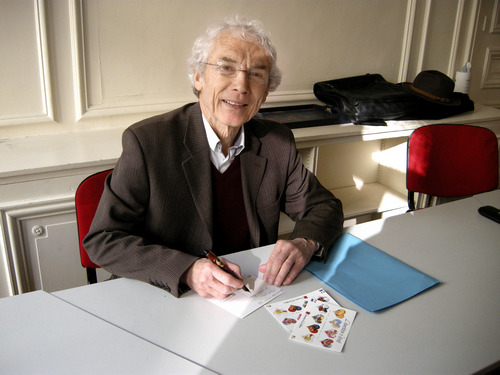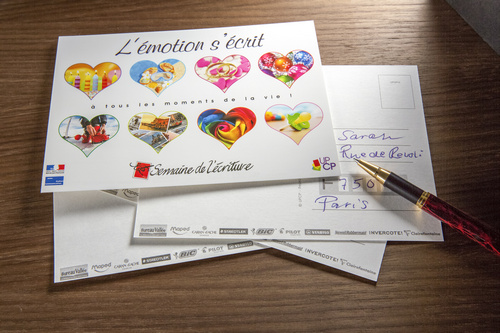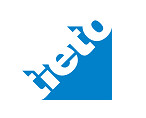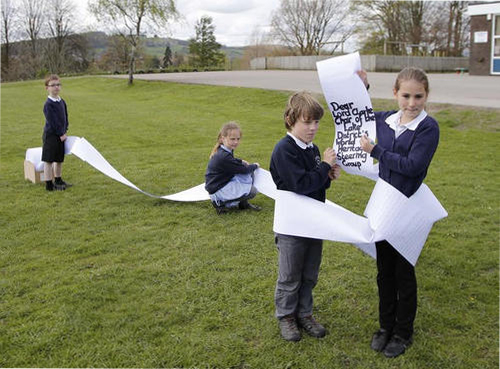Ianadmin
Berberich Papier and Papier Union agree a regional logistics partnership
 Carl Berberich GmbH and Papier Union GmbH will cooperate on logistics from 1 May 2015. By doing so, the two paper merchants aim to improve the efficiency and achieve more flexible deliveries for their clients.
Carl Berberich GmbH and Papier Union GmbH will cooperate on logistics from 1 May 2015. By doing so, the two paper merchants aim to improve the efficiency and achieve more flexible deliveries for their clients.
The core idea behind the partnership, according to Berberich Managing Director Heinz König, is to increase flexibility, which requires an efficient logistics network. With respect to market dynamics, König adds: “The new partnership will allow us to react quickly to changes in the market, to take greater advantage of new opportunities and to secure existing client relationships over the long term.”
“Both companies are remaining independent,” notes Thomas Schimanowski, Managing Director of Papier Union. “Pooling our wide-ranging logistics expertise further strengthens the individual companies and allows them to provide clients with more flexible and cost-optimised deliveries. These benefits all involved – our clients and both companies.
About Papier Union GmbH
As a 100% subsidiary of the Inapa Group, Papier Union belongs to one of the largest European merchant groups in the paper sector. Papier Union is an industry leader among Germany’s high- quality paper merchants. The company employs 850 staff at 20 sites across Germany.
About Carl Berberich GmbH
Carl Berberich GmbH, with the business divisions Berberich Papier and Berberich Systems, was founded in 1863 in Heilbronn, Baden-Württemberg. The paper wholesaler, which also develops and manufactures products for presentation and organisation, employs around 400 staff. The family company focuses on regional subsidiaries: Abstatt near Heilbronn, Hofheim-Wallau near Frankfurt, Langenfeld in Rheinland-Pfalz, Lippstadt in Westphalia, Lehrte near Hanover and Ottobrunn near Munich as well as an Austrian subsidiary in Thalgau near Salzburg.
Great interest in the spring meeting of PPT
 Some 80 persons within the Swedish forest-based industry gathered for the spring meeting with PPT, Swedish Pulp & Paper Technology Group, on April 22, 2015 at the Sweco headquarters in Stockholm.
Some 80 persons within the Swedish forest-based industry gathered for the spring meeting with PPT, Swedish Pulp & Paper Technology Group, on April 22, 2015 at the Sweco headquarters in Stockholm.
A full day program focused on issues of current interest with presentations and debates.
Sveaskog explained its challenges how best to utilize Sweden’s wood resources. Based on the pulp making process as a hub, Innventia elaborated on the development of various value chains for energy and chemistry and Kiram presented other driving forces for the development of bio-refining. Tofte gave details about the new facility in Norway for the production of Silva Green Fuel together with Statskraft and Södra. The suppliers of process technology presented how they adapt to the changing technology environment today.
The present big capital investment projects in the Nordic countries were discussed. A panel discussion, led by PPT chairman Ulf Frölander, focused on the bio refining aspects of these projects. Panellists were Sveaskog, Innventia, Kiram, NiNa Innovation, Andritz, ÅF and Södra Cell Tofte.
BillerudKorsnäs gave an insight into the present developments within the packaging business. The Swedish Forest Industries Federation presented a recent study, giving four development scenarios until year 2020 for the Swedish forest-based industry. Business Sweden gave its most recent business forecast and Sweco elaborated on some of its present projects within the global forest industry. Rounding up the meeting, a panel discussed a point of high interest to members of PPT, namely delivery conditions for selling technology to the forest-based industry. Panellists included SSG (Standard Solutions Group), SCA, Andritz, Somas and Valmet and the discussions were led by Åke Ryhagen.
For further information, please contact:
Ulf Frölander, Chairman of PPT, This email address is being protected from spambots. You need JavaScript enabled to view it.
Åke Ryhagen, Project Manager, PPT, This email address is being protected from spambots. You need JavaScript enabled to view it.
PPT, Swedish Pulp & Paper Technology Group, is an association formed in 1989 by the Swedish Trade Council (now Business Sweden) along with member companies. Emphasising environmental concerns, energy conservation, productivity increases and quality control, they are all dedicated to promoting Swedish technology for the forest-based industry around the world, www.pptgroup.se.
Carina Olson to leave Södra
 Carina Olson, CFO and Director of Purchasing, will step down from her position to assume the role of CFO for Praktikertjänst. The process of recruiting her successor has commenced.
Carina Olson, CFO and Director of Purchasing, will step down from her position to assume the role of CFO for Praktikertjänst. The process of recruiting her successor has commenced.
“I have spent 14 fantastic years at Södra, but am now at a stage in my life where I am ready for a change. The role of CFO for Praktikertjänst will be an exciting challenge for me, where I believe my experience from Södra will be extremely useful,” said Carina Olson.
“I, personally, will be very sorry to see Carina leave Södra, because she has so many excellent qualities in her profession and is also a very close associate. At the same time, I would like to congratulate Carina on her new challenge, and wish her the best of luck and prosperity. I will immediately initiate the process of finding her successor,” said Lars Idermark, CEO.
Carina Olson has been employed at Södra since 2001, where she has held various positions in the Group, including CFO of Södra Timber and Södra Cell, HR Director and, since 2011, CFO and Director of Purchasing.
Carina Olson will leave Södra in October 2015.
For further information, please contact:
Carina Olson, CFO and Director of Purchasing
Tel: +46 (0) 470 892 62
Annica Gerentz, Director of Communications
Tel: +46 (0) 470 894 81
Handwritten resistance to smartphone use
How can we persuade schoolchildren and teenagers to loosen their grip on their smartphones and write by hand instead? Bernard Bouvet is chairman of the Union Professionnelle de la Carte Postale, (UPCP), an advocacy organisation for the postcard industry in France. He may not have all the answers but he is at least practising active resistance. In recent years UPCP has put both itself and postcards on the map by creating the writing week Semaine de l’écriture, which aims to teach schoolchildren the value of writing texts by hand. Iggesund Paperboard has supported the campaign since its inception by providing materials for the postcards used in the various writing activities.

“It’s a cultural achievement to promote writing by hand,” says Bernard Bouvet, chairman of the French Union Professionnelle de la Carte Postale (UPCP). “We cannot allow all communication to go via emails and text messages, with the resulting degeneration of the language.”
For the past three school years, UPCP has distributed a postcard on a specific theme – most recently it was love – and organised a competition for the best-composed postcard. A specially composed guide for teachers informs them not only about the competition but also about a range of other school activities that can be done with the postcards. The campaign has been successful – in the first school year 45,000 cards were sent out; this year it was 360,000 and next year the plan is to distribute more than half a million cards. And it is the schools that are driving this strong growth trend.
“Personally I believe it is a cultural achievement to promote writing by hand,” Bouvet explains as he waves an elegant fountain pen. “We cannot allow all communication to go via emails and text messages, with the resulting degeneration of the language.”
The postcard activities and the writing week are of course one method of defending the position of physical postcards in an ever-more digitalised world. The postcard industry in France peaked at the turn of the millennium and since then annual sales have fallen by 20 per cent. However, for the past four years sales have stabilised and are worth about 400 million Euro.

During the second half of the year, the Union Professionnelle de la Carte Postale (UPCP) plans to distribute more than half a million postcards to French schools so pupils can learn the value of writing by hand.
Taking greeting cards and tourist postcards together, the average French person sends seven cards a year. As chairman of the UPCP, Bouvet looks enviously at the UK market, where people each send 54 cards a year.
“But they have a different culture in that respect – it would seem that they even send cards when they get divorced,” he says with a touch of French astonishment at the peculiar habits of the British.
Bouvet began his career as an apprentice typesetter at the age of 14 before becoming a photographer of postcard pictures. He remained loyal to postcards until retiring in February 2015. Despite his retirement, he will continue as the chairman of the UPCP throughout 2016. After that, he wants to continue developing the writing week with new forms of cooperation. In his spare time he intends to teach his 18 grandchildren to put aside their smartphones and write more postcards.
Iggesund
Iggesund Paperboard is part of the Swedish forest industry group Holmen, one of the world’s 100 most sustainable companies listed on the United Nations Global Compact Index. Iggesund’s turnover is just over €500 million and its flagship product Invercote is sold in more than 100 countries. The company has two brand families, Invercote and Incada, both positioned at the high end of their respective segments. Since 2010 Iggesund has invested more than €380 million to increase its energy efficiency and reduce the fossil emissions from its production.
Iggesund and the Holmen Group report all their fossil carbon emissions to the Carbon Disclosure Project. The environmental data form an integral part of an annual report that complies with the Global Reporting Initiative’s highest level of sustainability reporting. Iggesund was founded as an iron mill in 1685, but has been making paperboard for more than 50 years. The two mills, in northern Sweden and northern England employ 1500 people.
SCA Manchester millionaires twice over
 The Manchester mill of tissue makers SCA has passed the significant milestone of two million hours without a single lost time injury accident.
The Manchester mill of tissue makers SCA has passed the significant milestone of two million hours without a single lost time injury accident.
The mill at Trafford Park employs 135 people and is the home of premium household bands Cushelle toilet tissue and Plenty kitchen towel, as well as manufacturing ‘own brand’ products for leading supermarket chains.
“It’s a tremendous achievement for the mill,” said site manager Colin Popplewell. “And it’s thanks to everyone’s continued commitment to putting safety first in everything we do here at the site.”
The SCA mill’s ongoing safety success has been highlighted through its clear leadership year after year of the UK Confederation of Paper Industry’s national league table for accident-free manufacturing sites.
About SCA
SCA is a leading global hygiene and forest products company. The Group develops and produces sustainable personal care, tissue and forest products. Sales are conducted in about 100 countries under many strong brands, including the leading global brands TENA and Tork, and regional brands, such as Libero, Libresse, Lotus, Nosotras, Saba, Tempo and Vinda.
As Europe’s largest private forest owner, SCA places considerable emphasis on sustainable forest management. The Group has about 44,000 employees. Sales in 2014 amounted to approximately SEK 104bn (EUR 11.4bn). SCA was founded in 1929, has its headquarters in Stockholm, Sweden, and is listed on NASDAQ OMX Stockholm,.
In the UK and Republic of Ireland, SCA Hygiene Products has around 1,500 employees across nine sites, including six tissue production mills. Its regional brands include Bodyform, Cushelle, Velvet and Plenty. Some 66% of UK households bought SCA branded products in 2014 (Kantar Worldpanel Market Research).For more information, visit www.sca.com/uk.
For more information, visit www.sca.com/uk
European paper industry welcomes Valmet as a new partner
 The Confederation of European Paper Industries (CEPI) is happy to announce a new partnership with Valmet. CEPI and Valmet have already collaborated in the past, notably on the European Paper Week. The new status will deepen an established good relationship, to include areas of common interest.
The Confederation of European Paper Industries (CEPI) is happy to announce a new partnership with Valmet. CEPI and Valmet have already collaborated in the past, notably on the European Paper Week. The new status will deepen an established good relationship, to include areas of common interest.
More specifically, Valmet will gain a clear and in-depth insight of the issues the pulp and paper industry is facing, with the opportunity to be part of CEPI’s activities with its stakeholders. CEPI will gain knowledge and expertise, building on its ever-strong eco-system around industry suppliers with the ultimate goal of strenghtening its innovation agenda. “Valmet and CEPI have a lot to gain from this partnership. It is a priviledge to collaborate with such a highly-valued industry supplier and we are very excited to see where this partnership will lead us”, says Marco Mensink, CEPI’s Director General.
Valmet Corporation is the leading global developer and supplier of technologies, automation and services for the pulp, paper and energy industries. Valmet’s services cover everything from maintenance outsourcing to mill and plant improvements and spare parts. Their strong technology offering includes pulp mills, tissue, board and paper production lines, as well as power plants for bio-energy production.
This is the second new partnership for CEPI in 2015, with Pöyry having joined the programme in March. The partnership programme, launched in 2011, currently includes Buckman, Pöyry, Omya, Valmet and Voith. It is open to machine and chemical suppliers active in the pulp, paper or board industry with a direct link to paper manufacturing.
For more information, please contact Annie Xystouris at This email address is being protected from spambots. You need JavaScript enabled to view it. mobile phone: +32(0)486243642.
Metsä Board divests Gohrsmühle mill in Germany
 Metsä Board Corporation, a part of Metsä Group, has agreed to divest 100 per cent of its shares in Metsä Board Zanders GmbH including all related liabilities to mutares AG and its partner company. Metsä Board Zanders GmbH contains the business operations of Gohrsmühle mill located in Bergisch Gladbach, Germany. Gohrsmühle mill has approximately 480 employees and its main products are cast coated and label papers.
Metsä Board Corporation, a part of Metsä Group, has agreed to divest 100 per cent of its shares in Metsä Board Zanders GmbH including all related liabilities to mutares AG and its partner company. Metsä Board Zanders GmbH contains the business operations of Gohrsmühle mill located in Bergisch Gladbach, Germany. Gohrsmühle mill has approximately 480 employees and its main products are cast coated and label papers.
Closing of the transaction is subject to German competition authorities’ approval and it is expected to take place by the end of May 2015.
The divestment would reduce Metsä Board’s annual sales by approximately EUR 90 million and improve operating result by approximately EUR 20 million compared to 2014. A related positive non-recurring item of EUR 15 million is expected to be booked in Non-core operations segment’s 2Q 2015 operating result.
“This is an important step in our transformation to a paperboard company and also a major profit improvement measure. mutares AG is in a good position to develop Gohrsmühle mill’s businesses further together with the personnel”, comments CEO Mika Joukio.
mutares AG is a German industrial holding company that focuses on acquiring medium-sized companies with the goal of sustainably increasing their value in close co-operation with their management and employees. Annual sales of mutares Group was approximately EUR 650 million in 2014. mutares AG is listed in the Frankfurt stock exchange (ISIN: DE000A0SMSH2).
Metsä Board and Tieto deepen their partnership – Tieto to deliver TIPS MES to Metsä Board’s Husum mill
The world’s leading paperboard producer Metsä Board has chosen Tieto to deliver a complete manufacturing execution system (MES) to its mill in Husum, Sweden.
 Tieto is a strong player in the board and paper industry: Tieto has installed more than 220 manufacturing execution systems worldwide. Tieto’s TIPS is the leading manufacturing execution system covering sales, logistics and production management for the pulp, paper, board and tissue industries. It integrates business, planning and production processes in real time.
Tieto is a strong player in the board and paper industry: Tieto has installed more than 220 manufacturing execution systems worldwide. Tieto’s TIPS is the leading manufacturing execution system covering sales, logistics and production management for the pulp, paper, board and tissue industries. It integrates business, planning and production processes in real time.
The new contract continues a successful partnership between Tieto and Metsä Board. Tieto has already delivered TIPS MES to Metsä’s other mills in the Nordics. Implementing TIPS MES in Husum will help Metsä Board to harmonize and integrate workflows and processes globally. The new solution leads to more cost-efficient maintenance and support, and Metsä Board will benefit from having parallel key performance indicators across all mills.
“Tieto knows the industry and our company well. We are pleased to continue this partnership by integrating all our mills into the same system, which will help us provide a more harmonized system environment and way to operate,” says Börje Wiklund, IT Manager at Husum mill.
“This deal further enhances our relationship with Metsä Board and shows the true business value that the digitalisation of processes can bring to the board industry. We are pleased that Metsä Board has shown continued confidence in our cutting-edge TIPS products. We know how to run projects together, and we have an established governance model in place with MES,” says Mats Lidström, Tieto Customer Manager.
For further information, please contact:
Mats Lidström, Customer Manager, Tieto, +46 (0)70 590 59 37, This email address is being protected from spambots. You need JavaScript enabled to view it.
Börje Wiklund, IT Manager, Metsä Group, +46 663 18470, This email address is being protected from spambots. You need JavaScript enabled to view it.
Tieto is the largest IT services company in the Nordics providing full-life-cycle IT services. We also provide global product development services for companies in the communications and embedded technologies arena. Through industry insight, technology vision, and innovative thinking, Tieto proactively strives to inspire and engage our customers in finding new ways of accelerating their businesses.
Building on a strong Nordic heritage, Tieto combines global capabilities with local presence. Headquartered in Helsinki, Finland, Tieto has over 13,000 experts in more than 20 countries. Turnover is approximately €1.5 billion. Tieto’s shares are listed on NASDAQ in Helsinki and Stockholm. www.tieto.com
Metsä Board is a European producer of folding boxboard and white fresh forest fibre linerboard. Metsä Board offers its customers high-performance paperboards for consumer and retail packaging and the graphics industry. The company sales network serves brand owners, packaging manufacturers, printers and merchants. Metsä Board is part of the Metsä Group, and its shares are listed on the NASDAQ OMX Helsinki. www.metsaboard.com
ANDRITZ to rebuild paper machine for Suzano, Brazil, to expand paper production by fluff pulp production
 International technology Group ANDRITZ has received an order from Suzano Papel e Celulose to upgrade the paper machine at the Suzano mill in São Paulo. After the rebuild, the plant will produce both eucalyptus fluff pulp and coated/uncoated wood-free paper. Start-up is scheduled for the fourth quarter of 2015.
International technology Group ANDRITZ has received an order from Suzano Papel e Celulose to upgrade the paper machine at the Suzano mill in São Paulo. After the rebuild, the plant will produce both eucalyptus fluff pulp and coated/uncoated wood-free paper. Start-up is scheduled for the fourth quarter of 2015.
The machine will produce around 100,000 tons of fluff pulp per year. Due to this rebuild, Suzano will be the first fluff pulp producer in Brazil and the first producer worldwide to supply fluff pulp based on short-fiber eucalyptus. The company is one of the largest integrated pulp and paper producers in Latin America. Its main products are eucalyptus pulp, printing and writing paper, as well as paperboard.
The ANDRITZ GROUP
ANDRITZ is a globally leading supplier of plants, equipment, and services for hydropower stations, the pulp and paper industry, the metalworking and steel industries, and for solid/liquid separation in the municipal and industrial sectors. The publicly listed technology Group is headquartered in Graz, Austria, and has a staff of almost 25,000 employees. ANDRITZ operates over 250 sites worldwide.
ANDRITZ PULP & PAPER
The business area is a leading global supplier of equipment, systems, and services for the production and processing of all types of pulps, paper, tissue, and cardboard. The technologies cover the processing of logs, annual fibers, and waste paper; the production of chemical pulp, mechanical pulp, and recycled fibers; the recovery and reuse of chemicals; the preparation of paper machine furnish; the production of paper, tissue, and board; the calendering and coating of paper; as well as treatment of reject materials and sludge. The service range includes modernization, rebuilds, spare and wear parts, service and maintenance, as well as machine transfer and second-hand equipment. Biomass, steam, and recovery boilers, as well as gasification plants for power generation, flue gas cleaning plants, production equipment for biofuel (second generation), biomass torrefaction equipment, plants for the production of nonwovens, dissolving pulp, plastic films, and panelboards (MDF), and recycling plants are also allocated to the business area.
About Suzano Pulp and Paper
Suzano Pulp and Paper (Bovespa: SUZB5; OTC: SUZBY, and Latibex), a subsidiary of Suzano Holding and part of the Suzano Group, is one of the largest vertically integrated eucalyptus forestry, pulp and paper producers in Latin America. It has invested in the pulp and paper industry for over 90 years and its global operations span approximately 60 countries. The company operates six industrial units: Suzano, Rio Verde, Limeira, and Embu in the state of São Paulo, Mucuri in the state of Bahia, and Imperatriz in the state of Maranhão. Suzano Pulp and Paper has an annual pulp and paper production capacity of 4.7 million tons. For more information visit www.suzano.com.br.
Primary school children attempt to write the World's longest letter
Hundreds of children from schools in Cumbria, UK are coming together to write the world’s longest letter during National Stationery Week 2015. Writing messages on continuous rolls of paper supplied by James Cropper Paper, the letter will measure a huge 4800 metres long.
For anyone that has opened a telephone bill or bank statement and wondered if it would ever end, they haven’t seen anything on the scale of the letter being written right now in the north of England. School children in Kendal, Cumbria – nestling in the picturesque Lake District – have come together to write what will be the longest letter ever written.

Initiated by local business and internationally renowned luxury paper manufacturer, James Cropper Paper, hundreds of children have set about writing the letter as National Stationery Week (27 April – 3 May) gets underway, on the eve of World Stationery Day (29 April). Each child will be writing a short message about what they love about their home in the Lake District, supporting the National Park’s bid for UNESCO World Heritage status.
To begin the attempt, children gathered at Castle Park Primary School, Kendal – one of eight schools taking part - to write themselves into the history books.
 Helen Richardson, Head Teacher at Castle Park Primary School, said: “It will be a real challenge to fill such a huge piece of paper, but it shouldn’t be too difficult to inspire the children to write about what they love about the natural beauty that’s on their doorstep. Everyone is very proud to be involved. We won’t be marking their work on this occasion, but will keep a watchful eye over spelling as they go along.”
Helen Richardson, Head Teacher at Castle Park Primary School, said: “It will be a real challenge to fill such a huge piece of paper, but it shouldn’t be too difficult to inspire the children to write about what they love about the natural beauty that’s on their doorstep. Everyone is very proud to be involved. We won’t be marking their work on this occasion, but will keep a watchful eye over spelling as they go along.”
National Stationery Week has taken place every year for the past three years as a way of reminding people about the value of writing by hand and the remaining manufacturers of high quality materials for correspondence. James Cropper has supplied reels of its high quality Ambassador range for the challenge, a product usually reserved for the printing of corporate stationery and VIP invitations.
Tim Tidman, Product Manager at James Cropper said: “It’s all too rare to get a handwritten letter these days, so why not take it to the extreme and remind everyone of that simple pleasure? Having so many children living close to our mill be involved in this project is fantastic and it’s even more special that their words will go towards the Lakes’ bid for UNESCO World Heritage status. It’s been our home for almost two centuries and it still inspires our environmentally friendly, stationery papers.”
Once written on and signed by children and teachers, the eight reels of paper that make up the letter will be brought together and displayed at Brockhole, the Lake District Visitor Centre in Windermere, before being handed to the UNESCO bid team in 2016.
